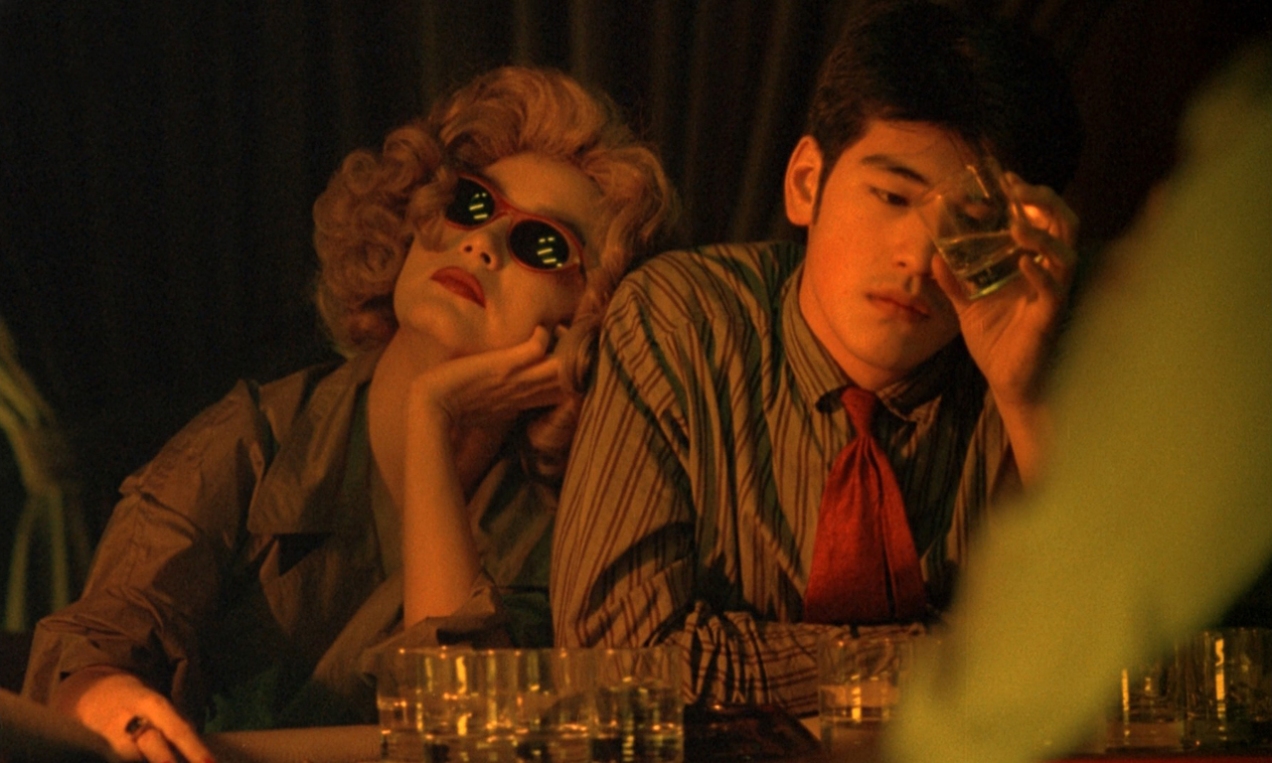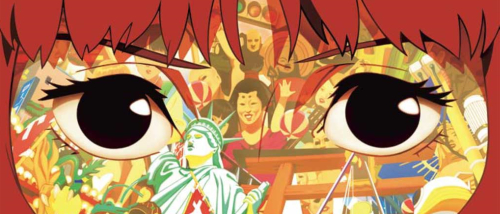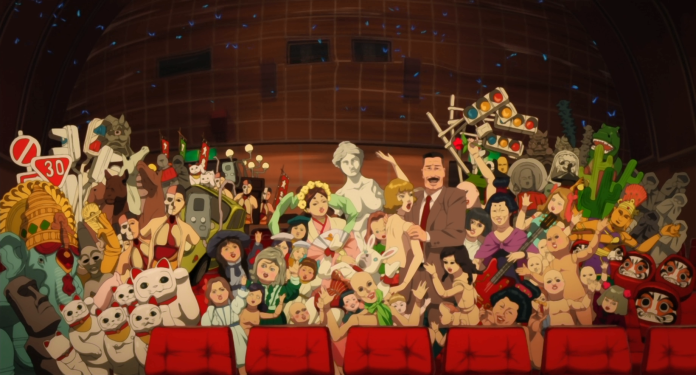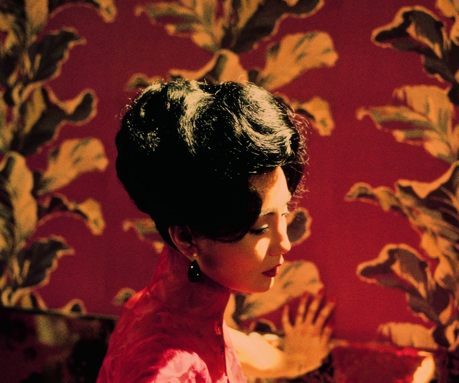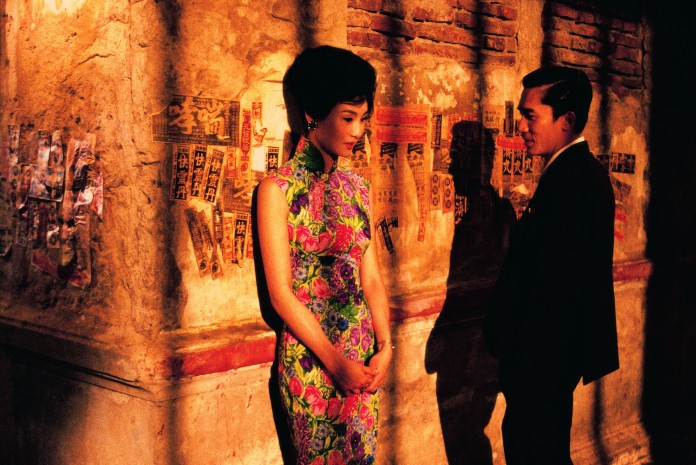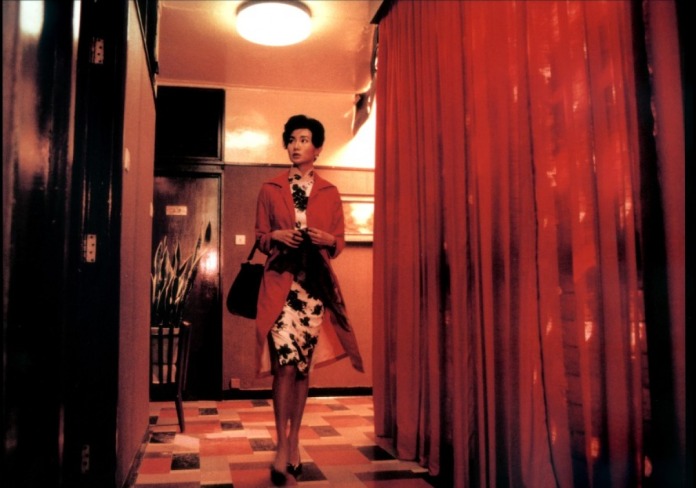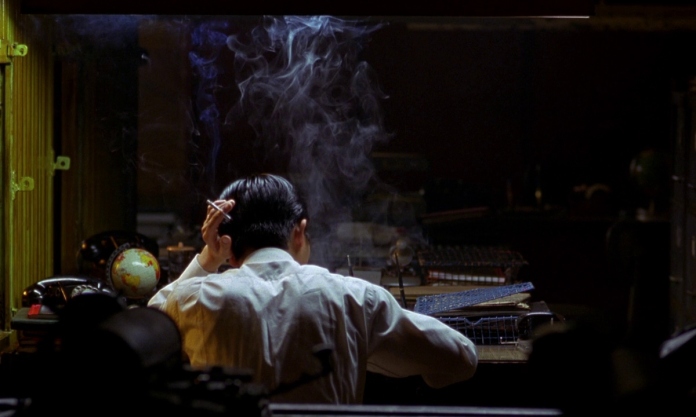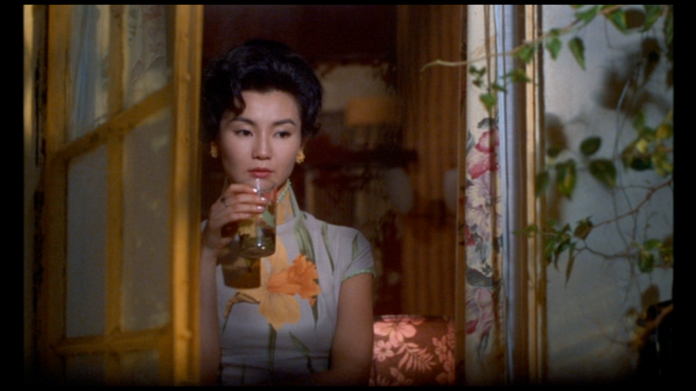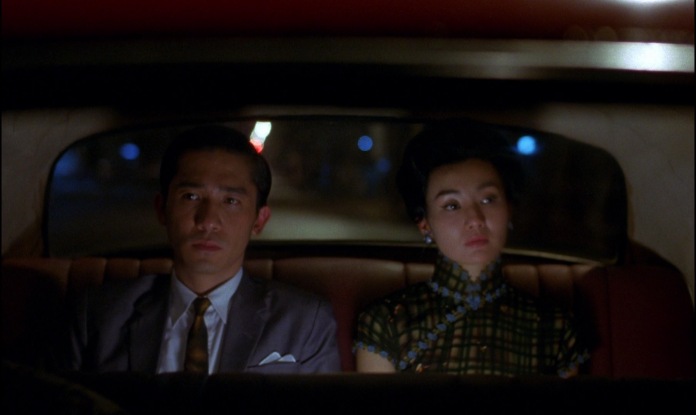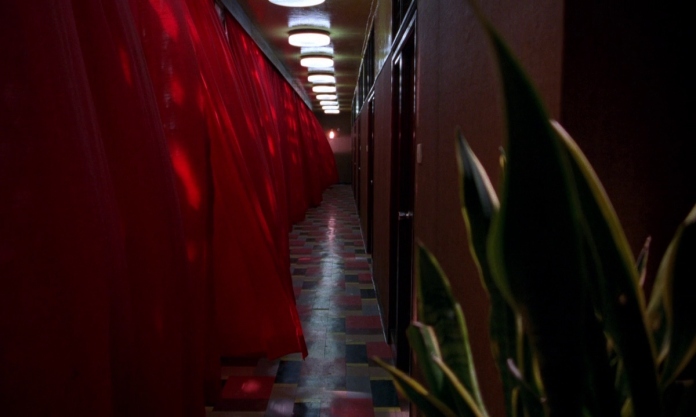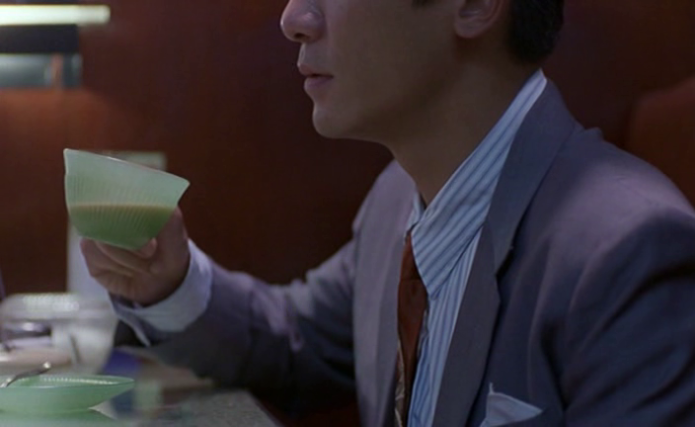Another Wong Kar-wai film review… there will be many to come. I believe this is the first Wong Kar-wai film I’ve ever watched. Here’s my review:
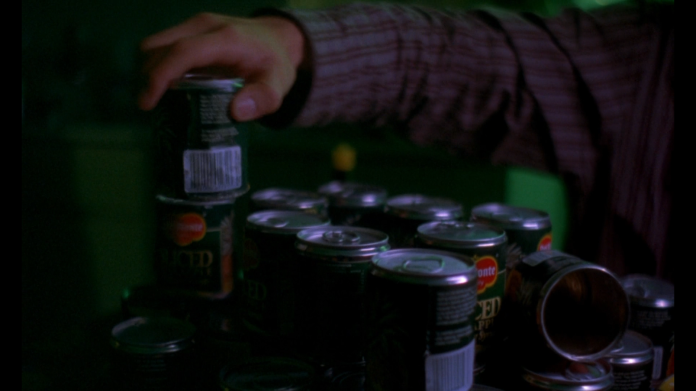
“You gonna eat that?”
Synopsis and spoiler-free review portion:
Wong kar-wai’s Chungking Express (Chinese: 重慶森林 chung hing sam lam) follows two storylines, both revolving around heartbroken policemen. The first one, starring Takeshi Kaneshiro as the happy-go-lucky He Qi-wu, and also known as Cop 223. Qi-wu’s girlfriend, named May, recently broke up with him, a month before his birthday (May 1st). He resolves to eat a can of pineapples everyday before his birthday – and if he is able to complete this task, he will take it as a sign that he will be able to get over his ex. During his month of heartbreak, by chance, he encounters the unnamed “Woman in the Blonde Wig” (played by Brigitte Lin). We get to see her own story, which includes a run-in with the law.
The second story in Chungking Express follows our protagonists Faye (played by Faye Wong) and Cop 663 (played by Tony Leung Chiu-wai). After 663’s recent breakup, he finds himself frequenting a fast-food Chinese food stand, “Chungking Express”, where Faye has been newly hired. Because of their reoccurring encounters, they eventually form an unlikely friendship.
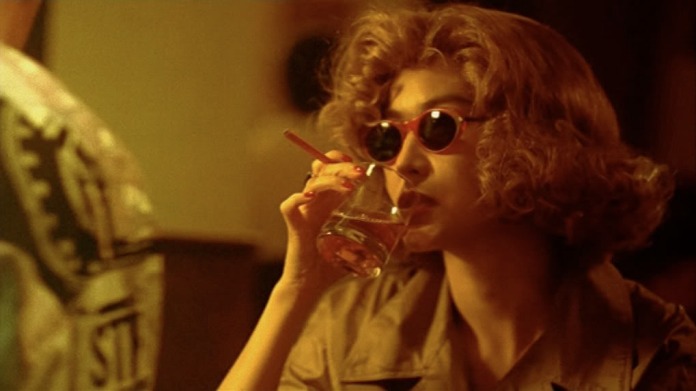
Brigitte Lin as “the woman in the blonde wig”, from story one.
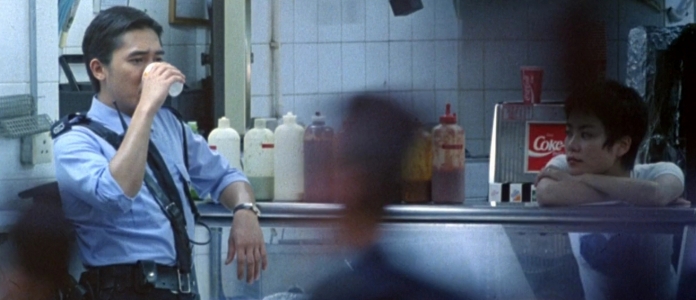
“Cop 663” played by Tony Leung Chiu-wai (left) and “Faye” played by Faye Wong (right) from the second story.
Why I love this movie so much and why you should watch it even though I know you won’t:
Yeah so this review is going to be a little bias. Very bias. I love how a lot of HK films have this really indie feel to it – but a lot of them that I’ve watched aren’t really… that good. A lot of them have good things about them, but overall, the majority of HK films that I have seen weren’t “good” in my eyes. Maybe I’ve just been looking in the wrong place (feel free to leave suggestions). But a good place to look is in this film.
First off, I loved every single main character in this film. They all had these very endearing quirks about them that made me love them a lot. I felt that there was a lot of attention to details about the characters’ personalities that really stuck with me after the film, and a lot of small things that just makes you really remember a film. This includes the pineapple eating thing that Qi-wu does, as mentioned above, why Lin’s character wears the blonde wig, etc.
I love the dialogue in this film. Whether it’s narration or conversation (to other people, to themselves), the conversations were often really interesting and really funny. I don’t really know how to describe the type of funny I think it is though – it’s definitely not a really outrageous, shocking type of funny. It’s more like a chuckling type of funny. I don’t know – they warm my heart and they’re interesting. The chemistry between the characters are really good as well. Were they ever not friends? Who knows?
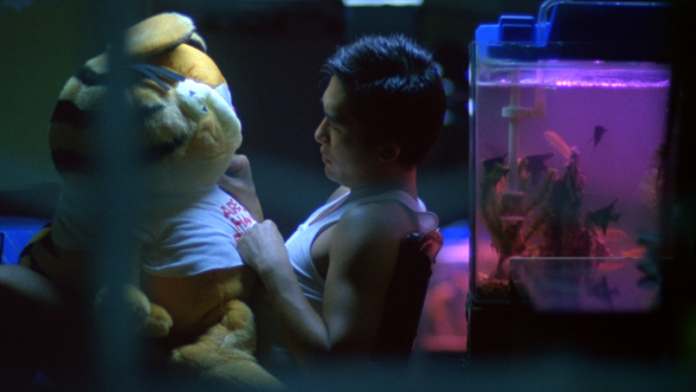
One of my favourite conversations in the film – 663 talking to his stuffed animals (Garfield in this one).
Recommended for:
I really love this movie, but I don’t think it’s for everyone. It’s similar to American indie films, in how some people just won’t like it because they don’t see the point in it. My brother’s friend described indie films to be like “two people pointing guns at each other for an hour and a half until someone finally pulls the trigger in the last two minutes of the film.” That’s fine – it’s not for everyone. But I think because it’s split into to halves, even people who struggle to see the point in indie films might be able to get into this. I would still say that it’s “exciting”, but not in the traditional way that American films are exciting if you get what I mean. There’s action – but this is by no means an action movie. There’s romance – but your heart isn’t going to be beating for the characters to fall in love and make out and such. It’s a very unconventional romance film, but I’d consider the characters to be quite “romantic”.
It’s an interesting film with intriguing characters, but don’t expect any really overwhelming emotions to bubble up as you watch it. I’d recommend it for anyone who can really fall in love with characters, and for anyone who can get sucked into interesting dialogues (maybe think Tarantino for the type of dialogues?) I wouldn’t recommend it to someone who only enjoys really epic movies. A lot of the things that are great about it are also really understated.
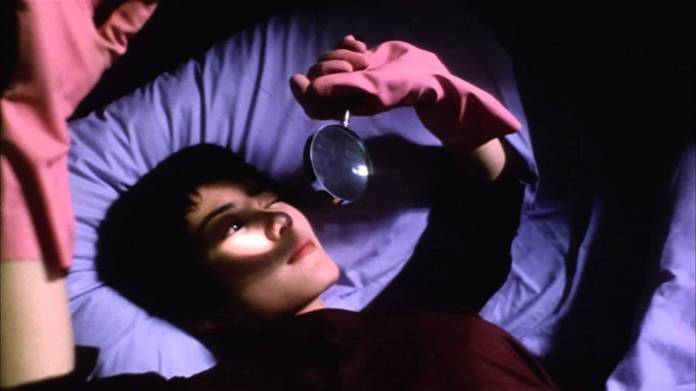
These scenes with Faye kinda weirded me out the first time I watched it, but I loved it nonetheless.
Specific scene analyses (spoiler alert!):
Just go watch the movie so that you can read this section already! Scroll down to the bottom for TLDR;
Which did I like better? Story one or story two?
Well, it’s hard to choose.
I thought storyline one was more original. I really, really, REALLY love the pineapple thing that Qi-wu was doing to get over his heartbreak. It was just really… adorable, being fixated on pineapples as a cure for heartbreak, of all things. Qi-wu was my favourite character in this film too – I’m sure he’s a lot of people’s favourite though, for those who have watched it. He’s always smiling, despite being so hurt. His phone calls to his other ex-girlfriends were hilarious as well. He has a lot of great quirks.
What was happening with Lin’s character as a part of story one was really compelling as well. It offset nicely with Qi-wu’s happy-go-lucky personality. It’s also funny that he’s hanging out with her since he’s a cop. Her story alone fulfills the “action” part of the film very well. I found myself really fixated on her part of the story as well as Qi-wu’s, though I liked Qi-wu as a character more. Her part of the story added the most “uniqueness” in terms of visuals for the film, with the shaky camera movements trailing her. It’s a great opening to the film, as it really draws you into it, following her through such a shady area.
But I also really loved story two, because I loved the chemistry between 663 and Faye. It’s kind of a weird chemistry though. No one gets quirkier than Faye – she breaks into his apartment to clean. Who does that? And poor 663 is so heartbroken, he doesn’t even notice. Their whole relationship is just odd. I don’t know why 663 was just cool with it after – he’s a cop and someone broke into his home.
As I said before, I really loved the whole bit where 663 talks to his stuffed animals and other non-living objects. My “chuckles” turned really obnoxious while I was watching these parts. Aside from the pineapples, this was my favourite bit from the movie.
So which do I like more? It’s so hard to choose. Through the first time watching it, I was more excited for the first story, but I think I liked the second story more, because I just loved the chemistry between the protagonists, and I loved the romantic quality of it nearing the end. Objectively though, I think the first one is better because it’s more compelling as a story. Qi-wu wins as the best character.
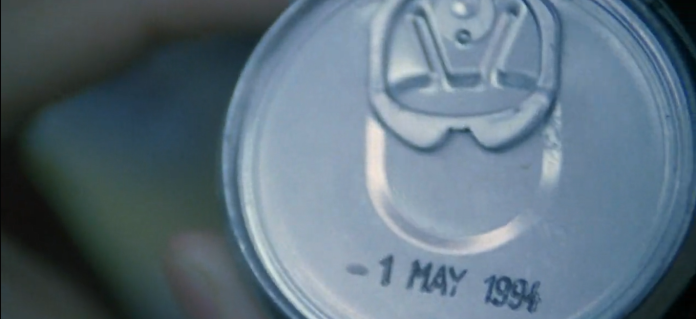
My favourite bit from the movie.
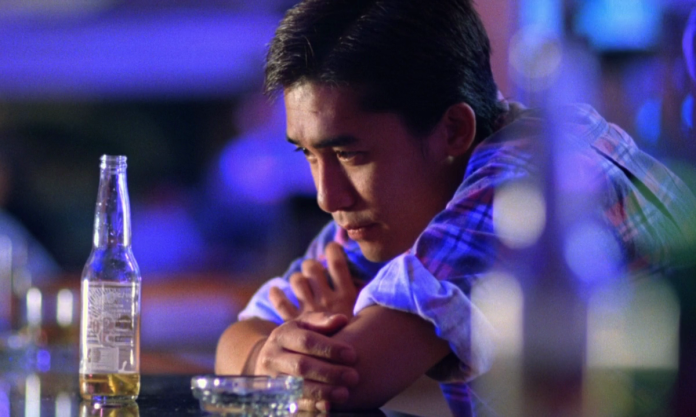
Much yearning from my heart while watching this scene.
Visual style (and also the score which I never really talk about):
Stylistically, I felt this film was really strong for creating a clear image of what Wong Kar-wai’s films are kind of like to me – both with the visuals and with the score. The song which they first play as Lin’s character rushes through the alleyways of Hong Kong creates a great sense urgency at the beginning, that really captivates you right off the bat. The reoccurring playing of “California Dreaming” by The Mamas and the Papas as Faye danced to it in the second story helped cement Faye’s character really well. In addition, I just like the whole colour tone of this film.
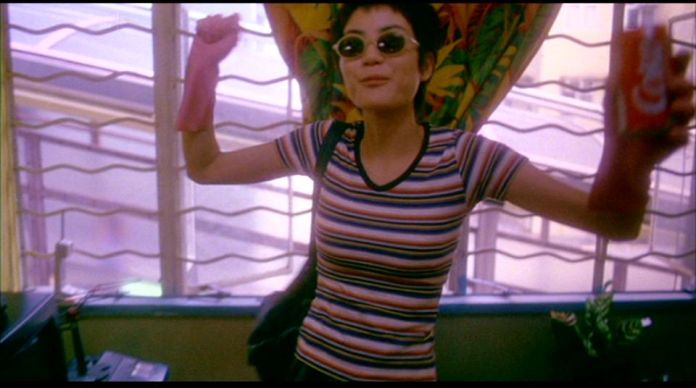
Faye loves to dance!
TLDR;
Recommended for: People looking for an unconventional romance movie, people who like indie films, people looking for a movie with great characters and memorable quirks
Not recommended for: People who like really epic or lovey dovey romances, people who really, really, really can’t survive without COMPLETE closure.
Visuals: 8/10 – The visuals of this film wasn’t anything too crazy, but they were really good at creating a style unique to Wong Kar-wai. The visuals matched really perfectly with the score.
Story: 9/10 – They were just absolutely compelling to me. I can’t really explain them here without giving too much away though.
Overall enjoyment: 9.5/10 – Yeah this probably seems too high to most people, but I LOVE Chungking Express. It’s my second favourite Wong Kar-wai film, or possibly my first (don’t make me get into this argument with myself right now please). The characters and all of their quirks made this film so loveable to me.
Also, for those of you who have watched the movie but haven’t seen this, Quentin Taratino gives a great talk about Chungking Express.

